Pupovac Causes Uproar in Parliament When Defending His Party Colleague
ZAGREB, 23 Feb 2022 - Several MPs responded heatedly on Wednesday to SDSS leader Milorad Pupovac's accusations about their intention to incite hatred, while he was speaking in defence of Deputy Prime Minister and party colleague, Boris Milošević, who is under investigation for abuse of power.
"There are some people who allegedly advocate justice and legality yet they are doing that in such a way that they incite and instigate hatred and with that, they destroy the very notion of justice and legality while inciting hatred easily leads to inciting violence," said Pupovac of the Independent Democratic Serb Party (SDSS) and added, "those people are not called Boris Milošević."
He underscored however that there are people who will always build a society sensitive to feelings for others, whether that means trying to survive in Dvor, suffering in Okučani or being a casualty of Ovčara. "These people will be found where care is great, plight is difficult and suffering is gruesome. These people have feelings for others and they are called Milošević, Boris Milošević.
Nevertheless, he added, there are people and there always will be those unaware of sensitive society, who are not led by that same feeling for others, for their concerns for tomorrow, their sufferings of today and calamities of yesterday, "whether that be suffering in Donji Lapac, Voćin or in Varivode or Grubori."
Pupovac: Grmoja won't be where there is suffering
Pupovac named Bridge MP Nikola Grmoja, the chairman of the Anti-Corruption Council, as one of those people who would not be where there is suffering nor MP Mirlan Vrkljan who was accused of bribe-taking as a physician.
Pupovac said there are people of all faiths and nations, from all ideological and political groups who use their authority led by social and public morals and their own integrity, no matter what position they hold.
"They do not abuse their power, they serve people regardless of their faith or nation, ideological or political belief", Pupovac said once again referring to Boris Milošević as one of those office-holders.
Grmoja reacted by saying that he has feelings for every Croatian citizen regardless of their ethnicity or party preference.
Grmoja: Subsidies granted to HDZ and SDSS members, friends and neighbours
"You have feelings for MP Dragana Jeckov's (SDSS) neighbours who did not meet the eligibility criteria for subsidies but received them. Croatian veterans did not fight for that sort of Croatia where members of the HDZ and SDSS, close friends and neighbours, are granted subsidies", Grmoja retorted.
"There are people who would arrest Serbs just like they did in 1990 and 1991 and their fate was never learned," Jeckov then told Grmoja.
Grmoja said he would never arrest anyone but would leave that to the competent institutions to arrest corrupt Serbs and even more corrupt Croatians, Croatians in the HDZ and three corrupt Serbs from the ranks of SDSS."
For more, check out our dedicated politics section.
Grmoja: Bridge Has Collected Enough Signatures for its Anti-COVID Referendum Petition
ZAGREB, 20 Dec 2021 - Nikola Grmoja of the Bridge party said on Sunday they had collected a sufficient number of signatures for their referendum petitions for the transfer of the powers of the national COVID-19 crisis management team to the parliament and the abolishment of COVID certificates.
This opposition party started collecting signatures on 4 December at over 1,200 venues across Croatia, and the two-week deadline for the initiative expired at midnight on 18 December.
For a referendum campaign to be successful, its organizers must collect the signatures of 10% of the electorate or 368,446 signatures.
Grmoja, however, stopped short of specifying the number of collected signatures, and in his statement to Hina on Sunday evening, he said that they were still gathering data and information from the ground and from local teams that had collected signatures in the last 14 days.
The results of the referendum campaign of this Opposition party are expected to be known on Wednesday.
On Saturday, the last day of the campaign, Grmoja said that data on the turnout from all signature-collecting points should be known by Wednesday, claiming that in the last two days of the campaign, on Friday and Saturday, the turnout was excellent.
Last Wednesday, he told a news conference that they had collected around 300,000 signatures, and in a bid to encourage as many people as possible to sign the petition, senior Bridge members joined the party activists on the ground collecting signatures.
In the event that the referendum petition had been supported by the required number of signatures, the questions proposed for the referendum could be also tested by the Constitutional Court.
President Milanović on the referendum
On 6 December, Croatian President Zoran Milanović said that he wouldn't sign the Bridge party's referendum petition for the abolition of COVID certificates because he thought he "isn't here to root for anyone", and he told the government and the ruling Croatian Democratic Union (HDZ) party that they had brought this on themselves.
"I have said I will not sign it, but what I'm saying carries at least as much weight as some signature. I believe the government and the HDZ are responsible for signatures being collected now for amending the Constitution so that what is clear to everyone, except to the HDZ and Plenković, could become clear to them as well," said Milanović.
Commenting on the referendum on that occasion, Milanović said it consisted of two parts, the first of which was a matter of constitutionality with regard to Article 17, or cases when it is decided on a temporary suspension of fundamental human rights and freedoms. According to him, the first part of the referendum will depend on whether enough signatures are collected, and if there are enough of them, then the referendum will likely succeed because those in favor of the crisis management team running Croatia, and they're about 25% of them, he says, will simply not cast their vote or their number will be insufficient.
"I think the second part of the referendum, which deals with legislative changes, is not very well though-out and... the Constitutional Court may not allow those referendum questions," he said then.
Four opposition groups say they never supported Bridge's referendum initiative
Last Thursday, MPs from the Green-Left Bloc, Centre/GLAS, Peasant Party /Workers' Front, and Istrian Democratic Party groups strongly denied the statement by the Bridge's Vice President Grmoja that he had received guarantees from all opposition parties that they would support Bridge's referendum petition.
"That statement is a complete lie," says a joint statement signed by the leaders of the four opposition groups, stressing that these parties "neither participated in the meeting on the referendum initiative nor pledged their support in any way."
"It is unclear why MP Grmoja told such lies. ... Some members of our groups have warned Bridge MPs several times that the referendum initiative will further divide citizens, mobilize anti-vax sentiment, help spread fake news and conspiracy theories, and potentially contribute to the escalation of violence among citizens," the joint statement said.
The statement was released the day after in the national parliament Bridge deputies entered into a conflict with Opposition lawmakers from the Social Democratic Party (SDP) and other center-left groups on the topic of vaccination against coronavirus.
For more on politics, follow TCN's dedicated page.
For more on COVID-19, follow TCN's dedicated page.
Results of MOST Party Referendum Campaign To Be Known Wednesday
ZAGREB, 19 Dec, 2021 - The results of the MOST party's referendum campaign against COVID-19 certificates are expected to be known on Wednesday, according to the Jutarnji List daily issue of Sunday.
Bridge vice-president Nikola Grmoja has said that data on the turnout from all signature-collecting points should be known by then, claiming that in the last two days of the campaign, on Friday and Saturday, the turnout was excellent.
For a referendum campaign to be successful, its organisers must collect the signatures of 10% of the electorate, or 368,446 signatures.
Earlier this week, the party estimated that it had collected around 300,000 signatures, and in a bid to encourage as many people as possible to sign the petition, senior Bridge members joined the party activists on the ground collecting signatures.
For more on politics, follow TCN's dedicated page.
For more about Croatia, CLICK HERE.
MOST Party Starts Gathering Signatures for Referendum Against COVID Passes
ZAGREB, 4 Dec, 2021 - The parliamentary opposition party Bridge started gathering signatures at over 1,200 venues across Croatia on Saturday for a referendum to regulate the work of the national COVID-19 crisis management team and abolish COVID certificates.
"We have started gathering signatures for this crucial referendum to strip the national COVID-19 team of its powers, restore democracy and abolish unlawful COVID certificates," the party's MP Marija Selak Raspudić told a press conference in front of a signature collection point in Zagreb's main square.
Signatures will be collected at stands in public places until 18 December. The referendum would demand that COVID certificates, which are now mandatory for entry into state and public institutions, be abolished within 30 days and that the powers of the COVID-19 crisis management team be transferred to Parliament.
MP Nino Raspudić said that the referendum questions contained what the opposition had been demanding all along - to return decision making to Parliament. He called on the other opposition parties, both left-wing and right-wing, and all people, both vaccinated and unvaccinated, to join them "on the last line of defence of democracy and the constitutional order."
The questions were formulated in cooperation with constitutional law experts.
Asked what the alternative to COVID certificates was, Selak Raspudić said that it was the testing of vulnerable groups in all health institutions and compliance with the epidemiological measures.
There is enough money for testing, because vaccines are being purchased in excessive quantities and are later donated anyway. That money could partly be used for buying tests, she added.
"We are not against measures. We are in favour of measures that will be consistent, epidemiologically founded and non-discriminating," Selak Raspudić stressed.
The press wanted to know if the Bridge MPs regretted their support for the recent protest rally against COVID certificates after the police announced they were investigating several persons on suspicion of inciting terrorism and some of those people were connected with the protest.
"We supported the people who came out to express their dissatisfaction, and not terrorism. We are the last persons who would advocate violence or any kind of terrorism, because we are fighting for the citizens' rights and freedoms in a democratic and legal way," MP Nikola Grmoja said.
For more on politics, follow TCN's dedicated page.
For more about Croatia, CLICK HERE.
Zagreb Gay Pride 2021 Analysis: Issues Still Exist, Pride Celebrates History and Present Equality
July 5, 2021 - Gay rights in Croatia still have challenges ahead, but even if all problems are resolved, Pride should remain a commemorative event. A look at the history of gay culture in Croatia and the current climate in this Zagreb Gay Pride 2021 Analysis by TCN reporter Ivor Kruljac.
Zagreb Pride is the oldest pride in Croatia. First held in 2002, it attracts more and more people every year, from LGBTQ members, straight people that support gay rights to NGOs, human rights activists, and even politicians from the left and liberal specter. Over the years, the event grew from a one-day pride to Pride month, full of educational and entertaining events regarding LGBTQ issues and a chance for people with the same preferences to meet and celebrate who they are.
Pride month is marked in June in honor of the 1969 Stonewall Uprising in Manhattan.
„The Stonewall Riots, also called the Stonewall Uprising, began in the early hours of June 28, 1969, when New York City police raided the Stonewall Inn, a gay club located in Greenwich Village in New York City. The raid sparked a riot among bar patrons and neighborhood residents as police roughly hauled employees and patrons out of the bar, leading to six days of protests and violent clashes with law enforcement outside the bar on Christopher Street, in neighboring streets, and in nearby Christopher Park. The Stonewall Riots served as a catalyst for the gay rights movement in the United States and around the world“, reminds History.com.
When it comes to LGBTQ in Croatia, as you can expect with the ideological divide Croatians generally experience, there are mixed feelings on the issue.
From street violence to a family event
Participating in the first Pride in 2002 required that if you are a man loving a man ready to openly admit it, you had to have balls.
The attacks by skinheads and other „morally concerned citizens were fierce and violent. Participants truly needed police protection which was provided but also needed to be careful to not get hit by the incoming rocks that were thrown among the participants.
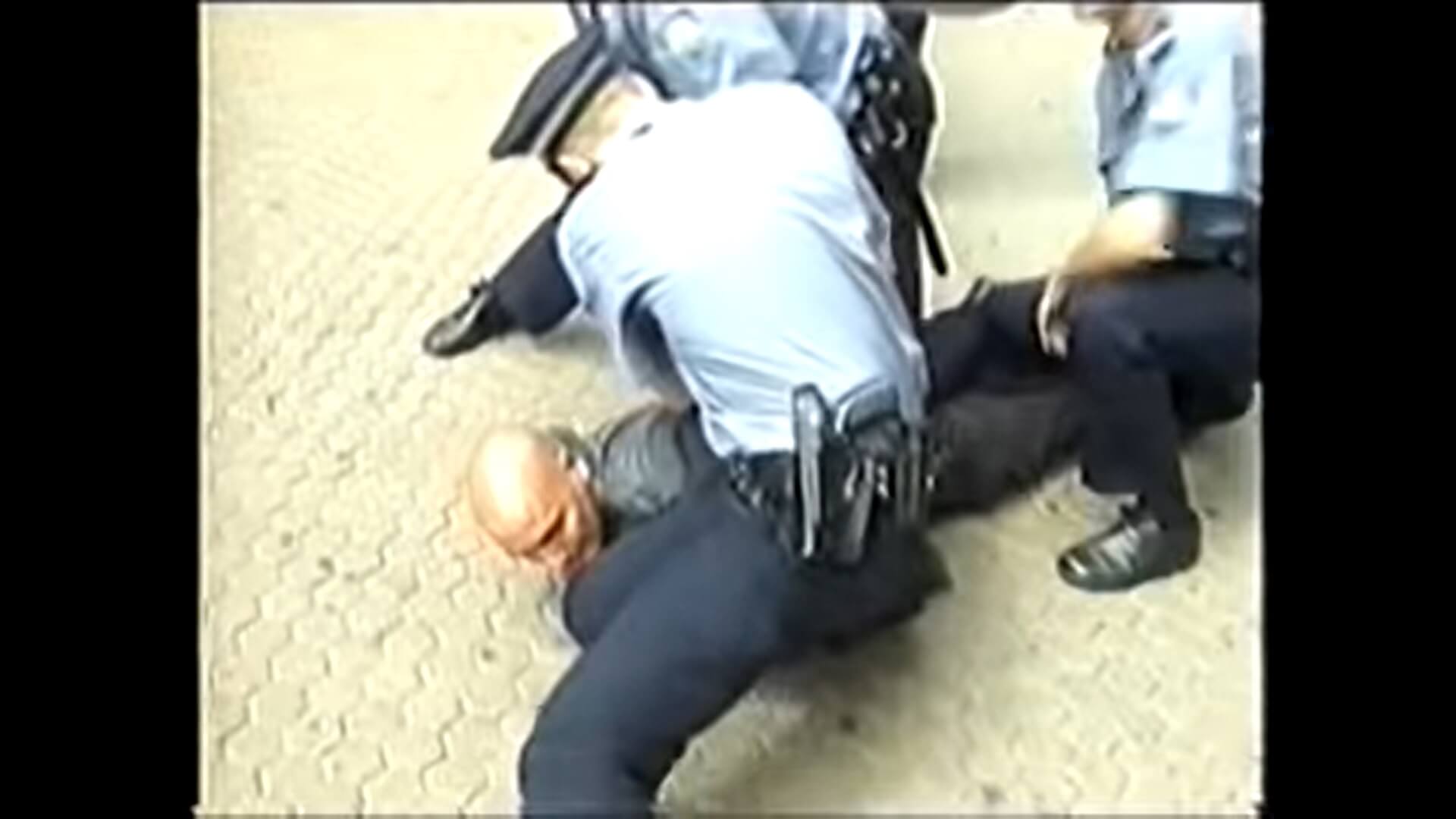
Police arresting violent skinhead at the first Zagreb Pride in 2002, screenshot / Zagreb pride
But, at least for Zagreb, the situation got better and more open. Today, pride is the forthcoming celebration of love and freedom, and entire families can be seen to join the picnic at Ribnjak park to teach their children tolerance and that people are not sick or different from others because of their sexual preference. Other larger cities in Croatia, such as Split, slowly but surely, do follow that path too, and Rijeka, the pinnacle of liberal Croatia, is also a very gay-friendly city.
Of course, a political counterstrike is expected and quite strong. The first most notable one was the 2013 referendum, where it was voted that the Croatian constitution declares marriage as a „community between a man and woman“. The goal was to deny LGBTQ couples the same rights as enjoyed by straight people.
However, the bill on life partnership outplayed that attempt.
In the meantime, LGBTQ couples can also adopt children in Croatia, as Constitutional Court concluded that gay couples fostering children is not against the Croatian Constitution.
That decision and along with the general openness of Croatia towards LGBTQ was followed by a controversial carnival in Imotski where an effigy of a gay couple was burned. President Zoran Milanović demanded an apology from the organizers, and SDP's MP Arsen Bauk filed charges against the organizers.
Counting pluses and minuses, the report on Croatia being the 39th best country for LGBTQ visitors still seems to uphold. No changes for the better, but at least Croatia is still in the top third for this category of tourists.
Haters strike back
2020 and 2021 sadly saw the uprise of violence towards LGBTQ in the Croatian capital. Apart from the occasional tearing down or burning of the rainbow flag, Croatia was shocked with an attempt of burning a man in Maksimir Forest Park as well, with his sexual preference being the sole motive for the attack.
On the other side, this year's pride felt to start stronger than ever. The newly elected mayor Tomislav Tomašević joined the parade, along with stating that Zagreb is a city that is open to everyone. This year arranged a bit differently to adhere to corona measures; around 2500 participated in the event.
„Twenty of our prides made our city and our republic a better, more democratic, and joyous place for the life of all citizens“, was the main message of the 20th edition of Zagreb Pride.
As reported by Index.hr, the Zagreb Pride association representatives stated that the Croatian LGBTIQ community „became a powerful, responsible and self-aware part of the country, but that the fight isn't over“.
„Our constitution and our laws still do not include in a complete and fair way. Our streets and squares are still not free of hate. We didn't forget nor we will forget victims of homophobic and fascist rampage in this year and all previous years“, stated Zagreb Pride.
Sadly, while Pride itself went without issues, participants of the pride who walked the streets of Zagreb after pride with rainbow flags faced a series of physical attacks on several locations in Zagreb.
A week ahead of Pride, conservative MOST Party parliament member Nikola Grmoja complained that commercials displayed during EURO 2020 commercials were LGBTQ propaganda and that kids need to be protected from it and announced that he might include it in his anti-pedophile package. Grmoja's statement caused strong disagreements among the Croatian public, with several people (including celebrities) teasing him that if he wants to start battling pedophilia, he should start from church (as Grmoja is quite clerical). Božo Petrov, president of the MOST party, added more fuel to the fire when he supported Grmoja, stating that „minorities can't dictate what my children can learn in school“. He added that minorities need to be aware that they are minorities and that „we tolerate that," sparking more enrage from the public, with many comparing MOST to the controversial Hungarian Prime Minister Viktor Orban.
Zagreb Pride linked the post-Pride physical attacks with Petrov and Grmoja's public statements, and Petrov and Grmoja announced they would sue Zagreb Pride for slender.
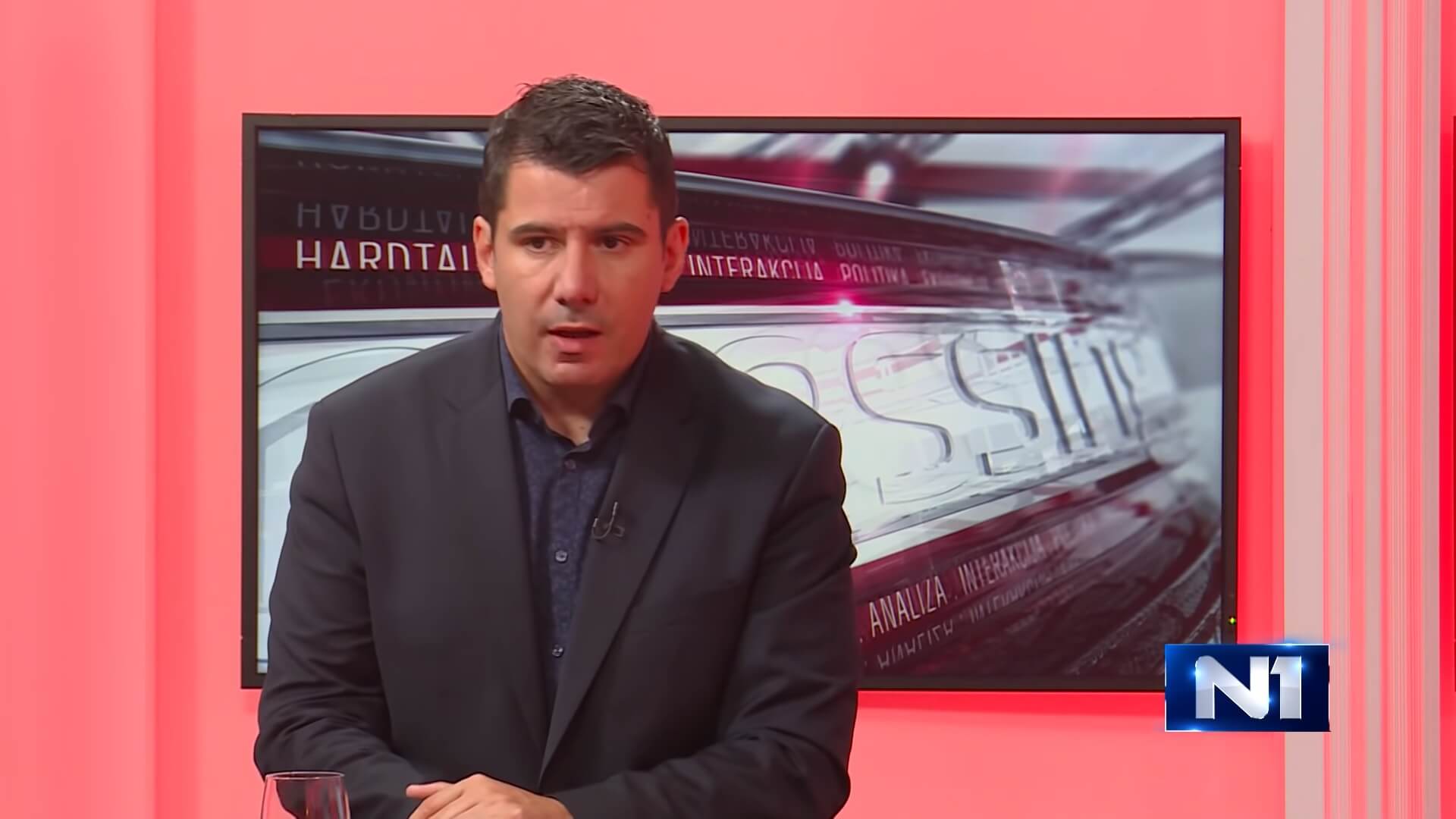
Nikola Grmoja, screenshot N1
The Law: "Gay is OK". Popular opinion: "Do it in your homes, not on the streets".
In this political escalation, what does the average Croatian think? Looking at the comments on social networks, it seems the majority of Croatians don't mind gays being gays and living how they like (even if they are not always happy with legal rights the LGBTQ community received). But, one sentiment in that „tolerance“ is particularly worrying.
„Live in your house however you want it. You don't have to wave around, like its a best thing ever“, said one of the online comments on Index.hr beneath the news on Petrov and Grmoja.
So it seems the public does not understand why Pride is important. First of all, as evident, the political climate is such that the battle for equality truly isn't over in Croatia, and Pride is the best way for the community to express what issues LGBTQ still face in Croatia. Additionally, pride month is also educational and supportive, and public presence show to other people who feel the same that they are not alone, as they might feel lonely and unable to find people who feel the same in everyday life.
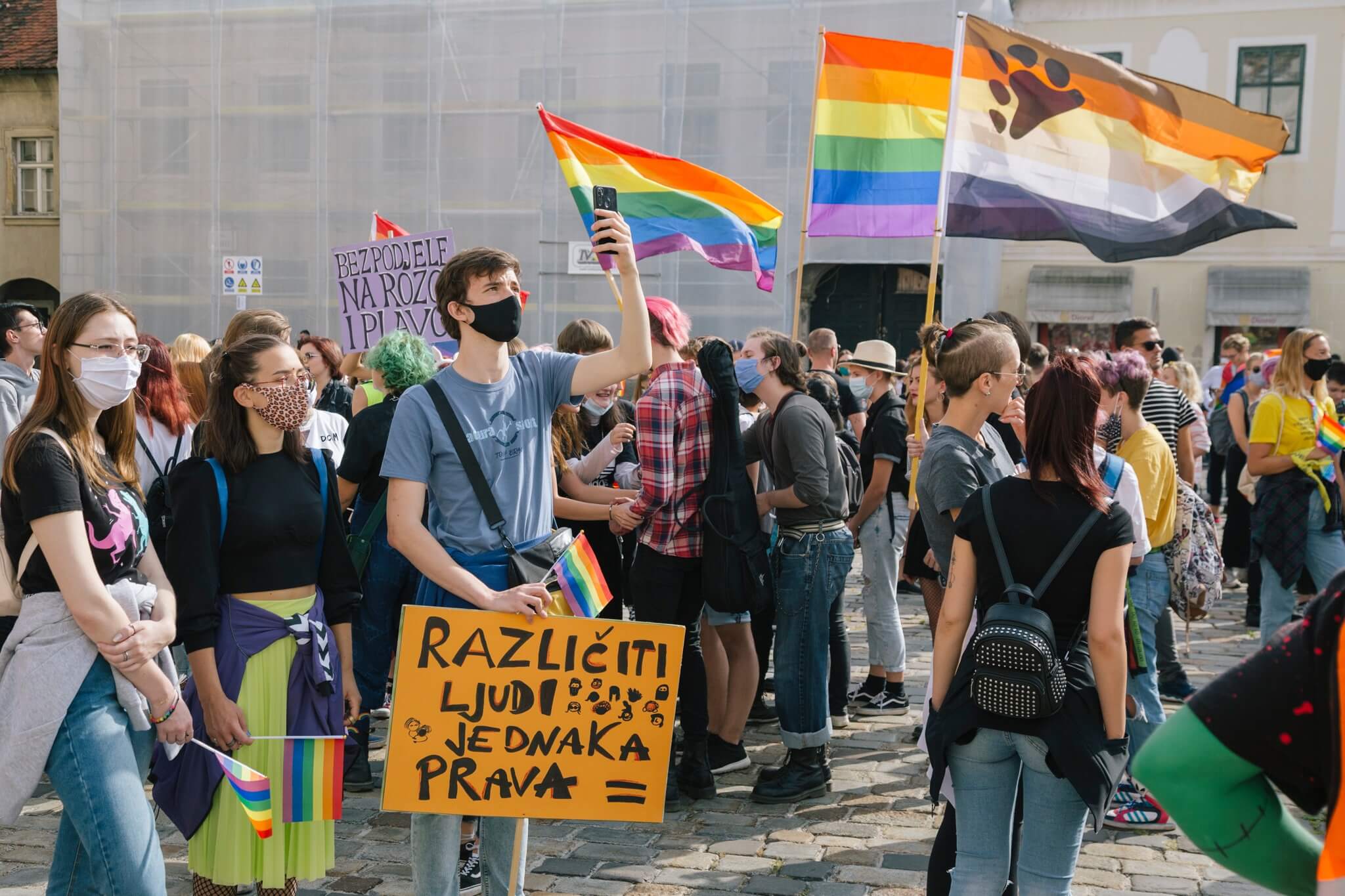
© Zagreb Pride
But, even if the law and constitution give the same rights and solves the problem of intolerance of LGBTQ people completely, does that mean that Pride should then be canceled? Well, Croatia won its independence and the war in the nineties. Does that mean we should stop commemorating the Homeland War? Or is it nice to honor and celebrate the victory and triumph over all obstacles Croatia had to face in its independence? Pride is a cultural, commemorative event honoring those who were or still are victims and oppressed for their sexual preference, either in Croatia or in the world. Croatia is a democratic country. Every group, national, ethnical, racial, religious, etc. should have the right to gather and honor its heroes. The right to gather and honor its tragedies and their dates and connect with other people who feel the same. If political elites are so concerned with keeping Croatians in Croatia, then they can't afford to discriminate or attack part of Croatian society solely based on their sexual preference. A preference that, unlike being violent or intolerable, can't be chosen.
Learn more about LGBT rights in Croatia and what LGBT tourists should know on our TC page.
For more about LGBT in Croatia, follow TCN's dedicated page.
Highlights of the Week: 5 Big Events in Croatia from May 17-23, 2021
May 23, 2021 - TCN's highlights of the week. A look at the events in Croatia from May 17 through the selection of TCN's reporter Ivor Kruljac.
From Local elections to released details of the Euro 2020 championship strategy to the release of Zoran Mamić. Add Besana company attempting to boost its position in Croatia, and you have a truly exciting week. Here are the highlights.
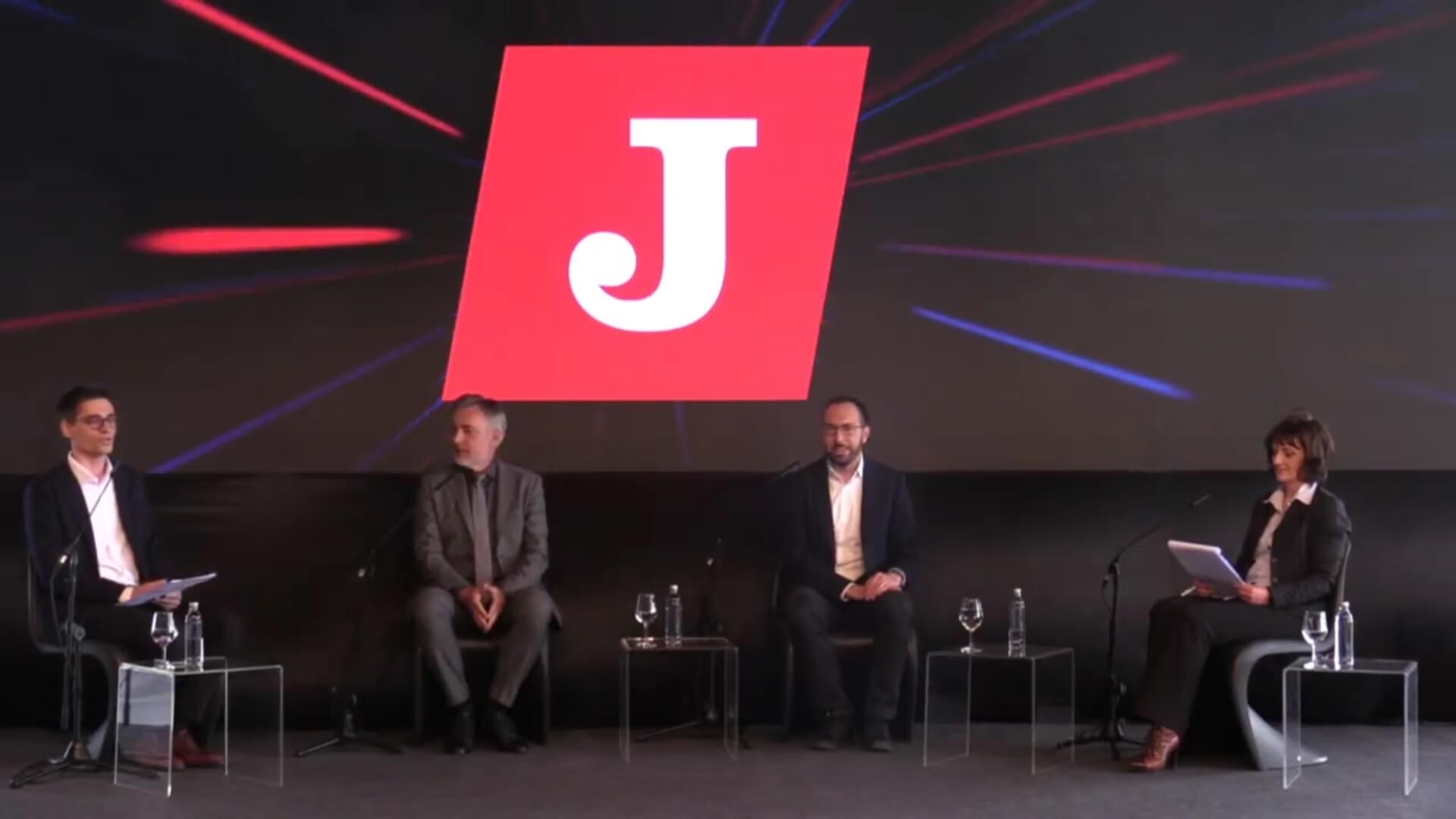
screenshot / Jutarnji list
Highlights of the Week: Zagreb mayor candidates Tomašević and Škoro had a debate ahead of the second round of elections
Jutarnji List invited on Friday mayoral candidates Miroslav Škoro (Homeland Movement), and Tomislav Tomašević of the green-left party We Can! to debate ahead of new elections.
In the first round of the elections, We Can! earned 147.631 votes (45.15%), while Homeland Movement had 39.789 votes (12.16%). Before officially entering the second round, Škoro declared Tomašević and We Can! party extreme left and pushed the narrative of elections as an ideological referendum among right-wing and conservative circles. Škoro also accused We Can! of being foreign mercenaries working for a philanthropist George Soros or wanting to revitalize Yugoslavia and Škoro's associate Zlatko Hasanbegović earlier in the week called We Can! a lesbian syndicate. Additionally, Nikola Grmoja (Most Party) stated for N1 that We Can! are Soroshians and accusations of their weird name-calling saw a random generator on the internet designed to mock these terms by random options of name-calling. Meanwhile, Tomašević continued the campaign talking about solutions to the problems Zagreb is currently facing but occasionally makes remark accusations while keeping it clean. The debate on Jutarnji List saw similar rhetoric from both candidates in their public performances, and overall, at least for the people of Zagreb, May 30 can't come soon enough.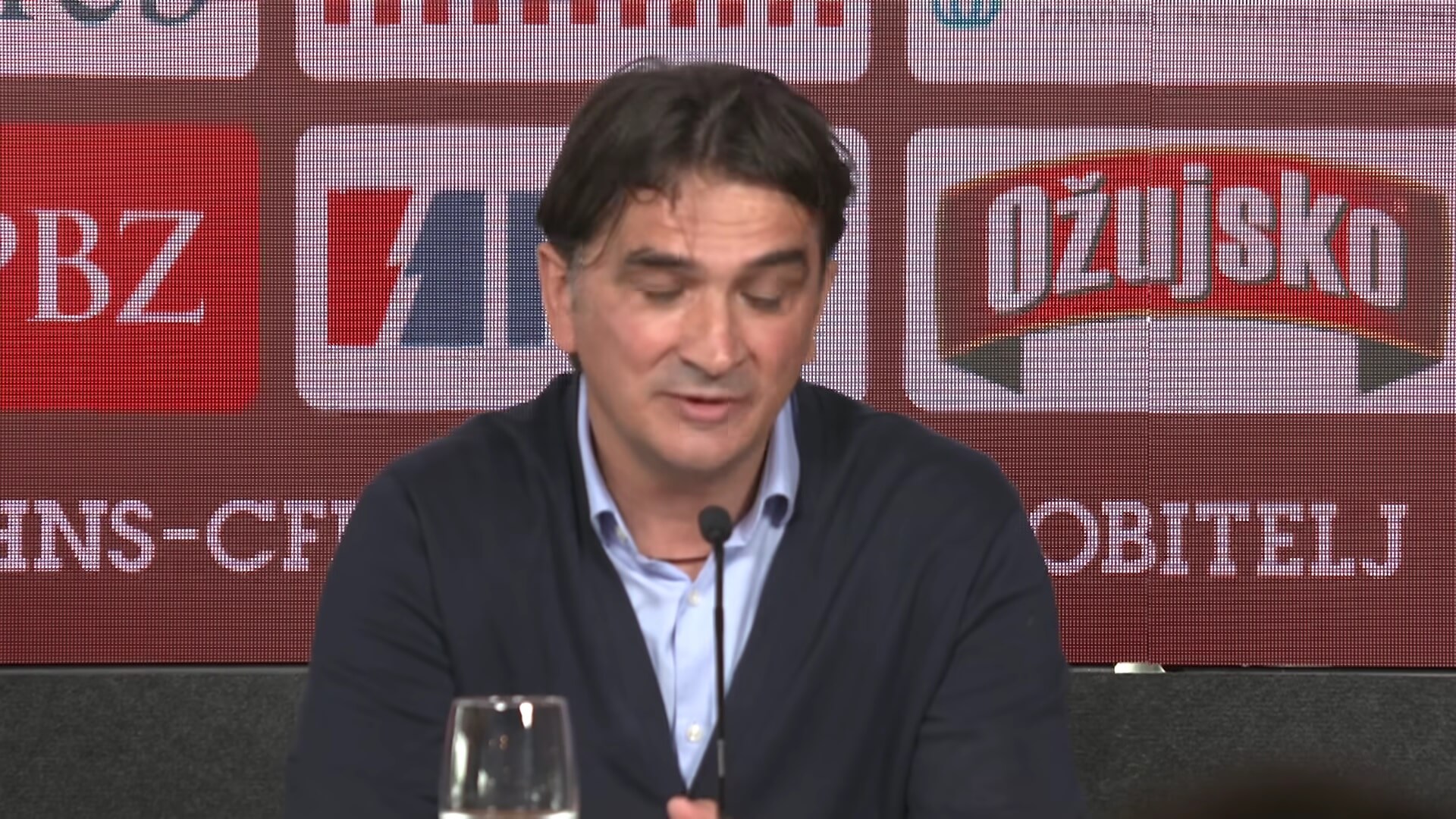
screenshot / Hrvatski nogometni savez
Highlights of the Week: Zlatko Dalić announces preliminary EURO 2020 Croatia player list
Coach Zlatko Dalic has announced the preliminary EURO 2020 Croatia player list on Monday. Luka Modrić (Real Madrid), Marcelo Brozović (Inter), Milan Badelj (Genoa), Mateo Kovačić (Chelsea) are some of the names that made it on the list.
The Croatia national team has entered the last month of preparations for the European Championship, which opens on June 13 at Wembley against England at 3 pm.

screenshot / RTL
Highlights of the Week: Zoran Mamić released from custody
Former Dinamo football coach Zoran Mamić will remain free while in Bosnia and Herzegovina; however, he will have to report to the police once a week, and his personal documents have been temporarily confiscated, the court in Bosnia and Herzegovina decided on Wednesday.
Zoran Mamić was arrested early Wednesday morning by officers from the State Investigation and Protection Agency (SIPA) based on an arrest warrant issued against him in Croatia.
After that, Mamić was handed over to the court in Sarajevo. Judge Branko Perić determined his status, including his citizenship of BiH. The judge ruled that Mamić would remain free with precautionary measures and was ordered to give in his personal identification documents.
The court did not discuss the matter of Mamić's extradition, considering that Croatia has not sent a formal request yet.
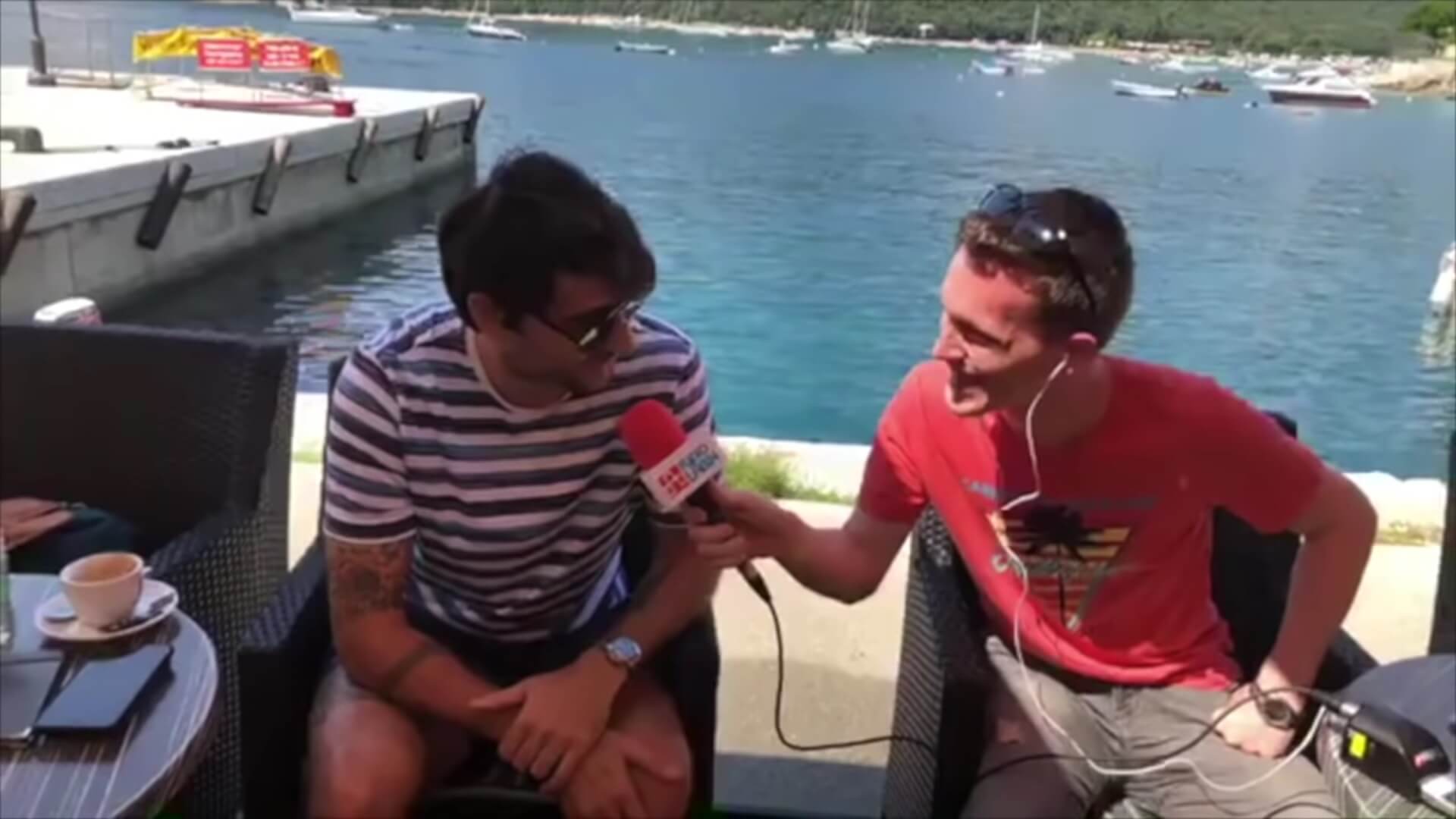
screenshot / Radio Labin
Highlights of the Week: Former football player Vedran Ćorluka new Croatian assistant coach
The new Croatia national team assistant coach Vedran Ćorluka was officially presented by coach Zlatko Dalić at a press conference in Zagreb ahead of EURO 2020.
Although there was a lot of speculation, Croatian football player Vedran Ćorluka officially announced the end of his playing career and was confirmed as the new Croatia assistant coach on Monday.
"I did not plan it, but the moment has come," said Ćorluka at the press conference at which coach Zlatko Dalić presented the list of players for the upcoming European Championship.

Pixabay
Highlights of the Week: Italian company Besana strengthening position in Croatia
The Italian company Besana, which is otherwise one of the strongest European companies in the production and processing of nuts and dried fruit, is working to further strengthen its position here in Croatia.
As TCN reported on Monday, the Italian company Besana currently has 50 subcontractors located in Croatia, from whom it buys about 100 tonnes of hazelnuts per year. But, much more can be expected if their plans go well.
To learn more about Croatia, have a look at our newly launched TC website.
For more about news in Croatia, follow TCN's dedicated page.
Opposition Parties File Motion of No Confidence in Health Minister Vili Beroš
ZAGREB, 4 May, 2021 - Parliamentary opposition parties have filed a joint motion for a vote of no confidence in Health Minister Vili Beroš over the accumulated problems in the healthcare sector and scandals related to the minister, Social Democratic Party (SDP) leader Peđa Grbin said on Tuesday.
"The reasons for this move are clear to all citizens - the accumulated debts in the healthcare system resulted in the suspension of deliveries of medicines to hospitals at the height of the pandemic. There are also huge problems with the vaccination system, and we have learned of favourable treatment in the development of the cijepise.hr vaccination registration system," Grbin said.
"The development of this non-functioning system was awarded to people connected with Minister Beroš. There are also suspicious public procurement procedures at the Health Ministry such as one where IT services were awarded to a florist and tenders were fixed for former HDZ health ministers Andrija Hebrang and Neven Ljubičić, which have been cancelled but only after media started writing about them," he added.
"The Health Ministry is simply not functioning. There are no reforms, and the extent to which this affects people's lives could best be seen in a recent case at the Clinic for Tumors where citizens suffering from malignant diseases could not receive adequate care," Grbin said, naming Beroš as the person most responsible for this.
"We want Beroš to go because right now he has done nothing positive for the healthcare system, and all the negative things he has done pose a direct threat to people's health and lives," the SDP leader said. "His departure, however, will not be enough and we will all have to come to grips with the accumulated problems together."
Grbin said that a discussion on Beroš must be held within 30 days, and whether it will be held before or after the 16 May local elections "depends on Prime Minister Andrej Plenković and Parliament Speaker Gordan Jandroković."
The initiative was signed by all opposition groups in parliament except the Croatian Sovereignists, but they have announced that they will vote in favour Beroš's resignation, Grbin said.
MOST's Nikola Grmoja said that his party had been warning for a long time about the problems faced by the healthcare system, including huge debts to drug wholesalers and long waiting lists.
"Beroš, of course, is not the only one to blame, the whole government is responsible. With our signatures we also want to encourage a reform of the healthcare system. All of us in the opposition agree that changes are necessary and should be launched urgently," Grmoja noted.
Sandra Benčić of the green-left We Can! platform said that they supported all the reasons for a no-confidence vote in Beroš, but stressed that the responsibility for the crisis in the healthcare system and the poor management of the coronavirus pandemic mostly lay with Prime Minister Andrej Plenković.
"None of the ministers, and certainly not Minister Beroš, makes decisions on their own. They were not chosen as competent persons in their departments but were chosen based on their loyalty to the prime minister who ultimately makes all decisions. The prime minister cannot be exonerated by his purported unawareness of the scandals for which we seek Beroš's resignation. That's why we ask whether the country can be run by a prime minister who does not know or who does not get key information," Benčić said.
Homeland Movement MP Stjepo Bartulica said that the Croatian healthcare system was too politicised. "There are countless problems and the possible resignation of Minister Beroš will not change things much. We have insisted from the start that the healthcare system should be governed by market principles because now we don't see any mechanisms that will bring about change to the system as this government resists structural reforms," he said.
For more about politics in Croatia, follow TCN's dedicated page.
Nikola Grmoja (Most Party): "PM Andrej Plenković is the main sponsor of corruption in Croatia"
ZAGREB, 27 April, 2021 - MOST Party Member of Parliament Nikola Grmoja on Tuesday commented on the latest developments in the wind park scandal, saying that even though he is trying to avoid it, Prime Minister Andrej Plenković is the main sponsor of corruption in Croatia.
He appointed ministers Gabrijela Žalac and Marija Vučković, he appointed Minister Tomislav Ćorić and all those who are directly or indirectly connected to the wind park scandal and now he is acting as if he didn't know anything, Grmoja told the press in Parliament House.
We saw that former minister Žalac lobbied for loans to be approved in that scandal, said Grmoja, recalling that while MOST Party was in government, that project did not get the green light because it lacked the necessary environmental impact study, and that as soon as MOST Party was ousted, Minister Ćorić approved the project.
Responding to a reporter's comment that even after the scandal was uncovered, many of its participants kept their positions, Grmoja said that the "mafia doesn't forget its members."
For more about politics in Croatia, follow TCN's dedicated page.
MP Grmoja Stripped of Immunity
ZAGREB, Dec 18, 2020 - MP Nikola Grmoja of the opposition Bridge party on Friday lost immunity at his own insistence, an almost unique case in the Croatian parliament.
"I ask all my colleagues to strip me of immunity, after which I will ask the Credentials and Privileges Commission (MIP) to strip me of it completely," Grmoja said, to which Speaker Gordan Jandrokovic replied that there was no "general" stripping of immunity, rather it was done case by case.
The case in question is a private defamation suit filed against Grmoja by former interior minister Ranko Ostojic after Grmoja claimed that he had evidence that Bridge leader Bozo Petrov was processed by the police anti-corruption office (PNUSKOK) in 2016.
MIP took the usual position, denying the approval for continuing the criminal prosecution of an MP, in this case Grmoja, while he was in office.
However, Grmoja called on MPs to strip him of immunity, contrary to MIP's recommendation, which they did.
Jandrokovic concluded that 23 MPs voted for MIP's decision, two abstained and 89 were against, and that Grmoja was stripped of immunity based on that.
Pedja Grbin of the Social Democratic Party said parliament had now rejected MIP's motion but that in order for Grmoja to be stripped of immunity, MIP must submit a motion to that effect and parliament approve it.
Jandrokovic agreed, saying "this is a unique case" and that consultations would be held.
I think MIP must submit a motion, so we will do this next time, Jandrokovic said, telling Grmoja that he still had immunity.
"So, we have rejected MIP's decision that he has immunity. However, you have immunity until MIP's decision (to the contrary) and its confirmation at a plenary," Jandrokovic told him.
Grmoja: HDZ Has Adapted Everything to Suit Its Own Needs
ZAGREB, May 15, 2020 - MP Nikola Grmoja (Bridge) said on Friday that the Croatian Democratic Union (HDZ) had made everything it had done, including the timing of the parliamentary election, to suit its own needs, adding that Bridge had not yet decided whether it would run in the election with Miroslav Skoro's Homeland Movement.
"They have adapted the election and everything else they have done to suit themselves. Croatian citizens are not important here... nor what the opposition thinks. This election is for them. I call on citizens to respond to this attack by going to the polls and to listen to those who will call on them to go to the polls yet until yesterday were telling them to stay home. Listen to them this time but don't vote for them," said Grmoja.
He rejected the interpretation that previously he had called for a snap election and was now objecting to the election being held in July.
In response to reporters' remark that according to news coming from the Homeland Movement, election slates were a bone of contention, Grmoja said that "slates and candidates' ranking on them are not the problem," and that he could be in the last, 14th place personally, but that the issue at hand was what sort of people would enter parliament through that alliance.
"I do not want obedient people to enter the parliament and secure Plenkovic another term in government," he said.
He admitted that Bridge had not been the best in selecting personnel and that it had made some mistakes but nevertheless he believes that the party did not entirely go wrong with its people.


